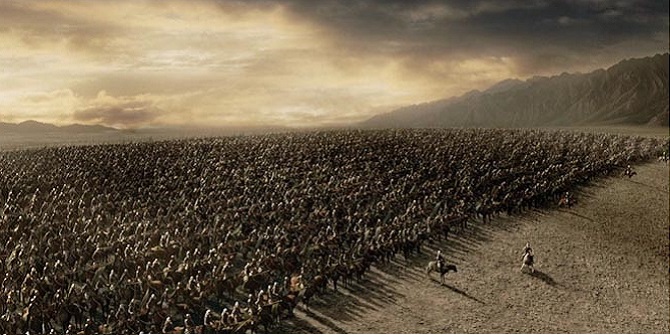 Does new media signal the end of a steady job? Budding multi-skilled BBC video journalist Angela Saini thinks so. On her blog she explains why she is leaving the Corporation to go solo:
Does new media signal the end of a steady job? Budding multi-skilled BBC video journalist Angela Saini thinks so. On her blog she explains why she is leaving the Corporation to go solo:
“I was trained by ITN and BBC News to produce, film and edit as a lone-working video and audio reporter. Although I’m one of the first generation of journalists who are multi-skilled in this way, in the long-run it is likely to be the way most of us work. And if we want to have the biggest possible impact on the world, then we need to make the most of all the different kinds of platforms, from the Internet, to emerging digital channels. Consequently, from next week I’ll be science writing and making independent films for a plethora of media outlets.”
Of course, Angela may just be someone who doesn’t fit in with conventional news organisations or simply a good self-publicist. But I think she has a point.
When I talk with young student journalists or novices trying to break in to the business my advice is always the same. Even before you get a job you have to be doing journalism for yourself.
The feedback I get from them is that employers expect you to act like a freelance and prove your worth before they will commit to a contract.
 At the same time the Telegraph‘s new 360 degree newsroom has excluded the need for freelancers. Its editor Will Lews thinks his hard-working new recruits can do it all.
At the same time the Telegraph‘s new 360 degree newsroom has excluded the need for freelancers. Its editor Will Lews thinks his hard-working new recruits can do it all.
Of course, these stories aren’t contradictory. What we are witnessing is a simultaneous restriction on recruitment and pressure to improve productivity. New media technology makes both possible.
What it does for the journalism is another question.
�




1 Comments